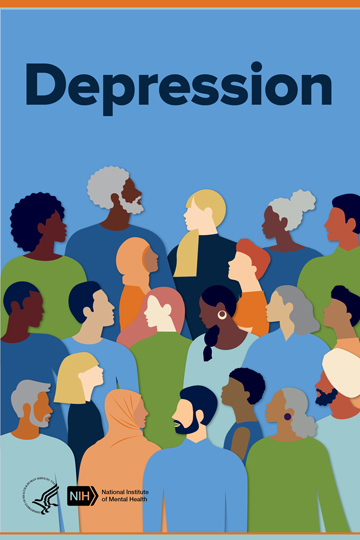How to Become a Depression Counselling Expert: A Guide
Are you drawn to helping others navigate the stormy seas of their emotions? Have you ever wondered how you could make a real difference in the lives of those struggling with depression?
Becoming a depression counsellor might be your calling. In a world where mental health conversations are more important than ever, your skills and empathy can shine a light on the path to healing. This guide will walk you through the steps to becoming a depression counsellor, from understanding the core principles of effective support to acquiring the necessary qualifications.
Dive in to discover how you can transform lives and find a fulfilling career that not only changes the lives of others but also enriches your own.
:max_bytes(150000):strip_icc()/childhood-depression-1066805-e4d630dd8c5e47c2ac1d40cd5cb20c24.png)
Path To Expertise
Becoming a depression counselor requires dedication and empathy. Start by earning a degree in psychology or counseling. Gain experience through internships and supervised practice. Pursue certification and continuous learning to stay updated. This path builds skills to effectively support individuals facing depression.
Embarking on the path to becoming a depression counselor is a rewarding journey. It’s not just about gaining knowledge; it’s about acquiring the skills and empathy to make a real difference in people’s lives. Whether you’re just starting or looking to refine your expertise, understanding the essential qualifications and specialized training needed can set you on the right track.
Essential Qualifications
To start your journey as a depression counselor, you need a strong educational foundation. Typically, a bachelor’s degree in psychology, social work, or a related field is the first step. This provides you with an understanding of human behavior and the basics of mental health. Many aspiring counselors pursue a master’s degree in counseling or clinical psychology. This advanced education deepens your knowledge and equips you with practical counseling techniques. Consider programs accredited by recognized bodies to ensure quality education. Have you ever considered how your own experiences with mental health can enhance your qualifications? Personal insights can offer unique perspectives when helping others, making your counseling approach more empathetic and effective.
Specialized Training
Beyond formal education, specialized training is crucial in honing your skills. Look for workshops and certification programs that focus specifically on depression counseling. These programs often cover the latest therapeutic techniques and research findings. Practical experience is invaluable. Engage in internships or supervised practice where you can apply your skills in real-world settings. This hands-on experience helps you gain confidence and refine your counseling style. Are you ready to learn from the best in the field? Mentorship opportunities with experienced counselors can provide guidance and support. Observing seasoned professionals in action can offer insights you might not find in textbooks. The journey to becoming a skilled depression counselor is filled with learning and growth. By focusing on essential qualifications and seeking specialized training, you can develop the expertise needed to truly impact lives. How will you take the next step on your path to expertise?
Building Skills
Building skills in depression counselling is crucial for anyone looking to make a genuine impact. As a counsellor, you are the beacon of hope for those navigating the stormy seas of depression. Developing the right skills ensures you can offer the support your clients need. Your journey to becoming an effective counsellor involves mastering techniques like active listening and developing empathy. Let’s dive into these core skills that will set you apart in your practice.
Active Listening Techniques
Active listening is the cornerstone of effective counselling. It involves truly hearing and understanding what your client is communicating, both verbally and non-verbally. You can start by maintaining eye contact and nodding to show you are engaged.
Reflecting back what the client has said can also affirm their feelings. For example, if a client shares they’re feeling overwhelmed, you might respond, “It sounds like you’re carrying a heavy load right now.” This not only shows you’re listening but also validates their emotions.
Ask open-ended questions to encourage clients to express themselves more freely. Instead of asking, “Are you feeling sad?” try, “What emotions are you experiencing today?” This invites a more detailed response and deeper conversation.
Empathy Development
Developing empathy is about seeing the world through your client’s eyes. It requires setting aside your own judgments and focusing on understanding their experiences and emotions. Remember a time when you felt misunderstood and how isolating it felt. This exercise can help you connect more deeply with your clients.
Practice putting yourself in your client’s shoes. If a client shares their struggles with anxiety, think about a time when you felt anxious and what helped you cope. While your experiences may differ, this practice can enhance your empathetic understanding.
Empathy is not just about feeling what others feel; it’s about communicating that understanding. Simple phrases like, “That sounds really tough,” or “I can imagine how difficult this must be for you,” can be incredibly powerful in showing your clients you truly care.
As you build these skills, remember that each interaction is an opportunity to learn and grow. What skill do you feel most confident in, and which do you think needs more practice? Reflect on your experiences, and you’ll find your path to becoming an effective depression counsellor clearer every day.
Core Competencies
Embarking on a journey to become a depression counselor requires mastering certain core competencies. These skills not only make you effective in your role but also empower you to genuinely connect with those seeking help. From grasping the nuances of depression to employing cognitive behavioral strategies, each competency equips you with the tools needed for impactful guidance. Let’s explore these essential skills.
Understanding Depression
Understanding depression is crucial to providing effective counseling. You need to comprehend its symptoms, causes, and impacts on daily life. What does it feel like to walk in the shoes of someone battling depression?
Empathy is your ally here. It’s not just about knowing facts; it’s about tuning into the emotional experiences of others. Consider your own moments of sadness or stress. How did you navigate those feelings? Use these insights to relate to your clients.
Stay informed about the latest research and treatment methods. This knowledge will help you guide your clients more effectively. You might even discover a technique that resonates with your personal understanding of mental health.
Cognitive Behavioral Strategies
Cognitive Behavioral Therapy (CBT) is a cornerstone in depression counseling. It focuses on altering negative thought patterns to foster positive behavior. Have you ever noticed how your thoughts shape your mood?
CBT encourages clients to identify and challenge these thoughts. Equip them with strategies to reframe their mindset. For instance, if a client feels they’re a failure, encourage them to list their accomplishments. This simple act can shift their perspective.
Role-playing can also be a powerful tool. By practicing real-life scenarios, clients can develop healthier responses. This hands-on approach not only builds confidence but also reinforces positive change.
How can you incorporate these strategies into your daily interactions? Observing your own thoughts and behaviors can provide invaluable insights. You might find unexpected connections between your experiences and the challenges your clients face.
As you delve into cognitive strategies, remember that small shifts can lead to significant transformations. Are you ready to guide others toward a healthier mindset?

Professional Certifications
Professional certifications in depression counseling are crucial for career development. They validate expertise and enhance credibility in the mental health field. Aspiring counselors gain essential skills and knowledge. This helps them provide effective support to clients. Certification opens doors to new opportunities and builds trust.
Accreditation Process
The accreditation process begins with selecting the right certification body. Research organizations that are well-recognized. Ensure they offer programs aligned with your career goals. The application process usually involves submitting educational credentials. Some programs require prior counseling experience. Others may ask for a personal statement or recommendation letters. Prepare thoroughly for exams or assessments. These evaluate your understanding and practical skills. Passing these assessments is necessary for certification.
Continuing Education
Continuing education is vital for maintaining professional certifications. It keeps you updated with the latest counseling techniques. New research and trends in mental health emerge regularly. Certifications often require ongoing training or workshops. This ensures you remain knowledgeable and effective. Look for courses in innovative therapy methods. Join seminars or webinars to learn from experts. Networking with peers enhances learning experiences. Always strive to expand your skills and understanding.
Ethical Practices
Ethical practices are vital in depression counseling. They guide counselors in their work. Following ethical standards ensures trust and safety. It protects both the counselor and the client. Adhering to ethics builds a strong professional reputation. It also enhances the quality of care provided.
Confidentiality Guidelines
Confidentiality is a cornerstone of counseling. Clients share sensitive information. Counselors must keep this information private. This builds trust between counselor and client. Confidentiality also fosters a safe environment for sharing. Respect clients’ privacy at all times. Follow legal and ethical guidelines strictly. Always inform clients about confidentiality limits. This helps manage expectations and maintain trust.
Maintaining Professional Boundaries
Professional boundaries are essential in counseling. They define the relationship between counselor and client. Boundaries prevent conflicts of interest. They also protect both parties from harm. Respect the counselor-client relationship. Avoid dual relationships with clients. These can cloud judgment and affect care. Set clear boundaries from the start. Communicate these boundaries openly with clients.
Networking Opportunities
Embarking on a journey to become a depression counselor is both fulfilling and challenging. One of the key aspects of this journey is building a strong network. Networking opportunities not only help you grow professionally but also enhance your understanding of depression counseling. These connections can provide support, open doors to job opportunities, and enrich your learning experience. But how do you effectively tap into these networking opportunities?
Joining Professional Associations
Professional associations are a great starting point. They offer a platform to connect with like-minded individuals who share your passion for mental health. Joining these associations can keep you informed about the latest trends in depression counseling.
Consider associations like the American Counseling Association (ACA) or the National Alliance on Mental Illness (NAMI). They provide resources, forums, and events designed specifically for mental health professionals. Being part of these groups can also lend credibility to your practice.
Ask yourself, how can you contribute to these communities? Active participation can lead to meaningful relationships and collaborations. Remember, networking is a two-way street—it’s not just about what you can gain, but also what you can give back.
Attending Workshops And Conferences
Workshops and conferences are invaluable for learning and networking. They present an opportunity to meet experts and peers who can offer insights and advice. Engaging in these events can broaden your perspective and deepen your understanding of depression counseling.
Look out for events that focus on mental health, such as the Global Mental Health Summit or local counseling workshops. These gatherings often feature speakers who are leaders in the field, providing a chance to learn from the best.
During these events, don’t be shy. Approach speakers with questions and introduce yourself to fellow attendees. A simple conversation can lead to a lifelong professional connection. How can you leverage these interactions to enhance your counseling practice?
Networking is about building relationships that last. By taking advantage of professional associations and workshops, you position yourself for success in depression counseling. Are you ready to make your mark in the mental health community?
Career Advancement
Depression counseling offers many paths for growth. Enhancing your skills expands your impact. Consider different avenues to elevate your career. Both private practice and research roles provide unique opportunities.
Setting Up Private Practice
Running your own practice gives you freedom. You design your schedule. Tailor your approach to suit your clients’ needs. Building a client base requires patience and dedication. Trust grows over time. Word-of-mouth helps attract new clients. Networking with other professionals can also aid your practice. Attend workshops and seminars. Stay updated on counseling techniques.
Creating a welcoming environment is crucial. Comfortable seating, calming decor, and privacy matter. Clients feel safe and understood. Respect their confidentiality. Offer flexible appointment times. Consider online sessions for accessibility. This expands your reach.
Exploring Research Roles
Research roles bring new insights to depression counseling. You delve into studies and find patterns. Collaborate with universities or research institutions. Their resources enhance your work. Data analysis skills are essential. They help draw meaningful conclusions.
Publishing papers builds your reputation. Share findings at conferences. Engage with the academic community. Influence future counseling practices. Research roles often lead to teaching opportunities. Educate the next generation of counselors. Pass on knowledge and experience.

Frequently Asked Questions
What Qualifications Are Needed For Depression Counselling?
To become a depression counselor, you typically need a bachelor’s degree in psychology or counseling. A master’s degree in counseling or a related field is often required. Additionally, obtaining relevant certifications and licenses is essential. Practical experience through internships or supervised practice is highly beneficial for building skills.
How Long Does It Take To Become A Counselor?
Becoming a depression counselor usually takes around six to eight years. This includes earning a bachelor’s degree, a master’s degree, and completing required supervised practice. The timeframe may vary depending on individual circumstances and specific program requirements.
What Skills Are Essential For Depression Counselors?
Essential skills for depression counselors include empathy, active listening, and effective communication. Problem-solving and critical thinking are crucial for understanding clients’ needs. Patience and emotional resilience help manage challenging situations. Continuous learning and adaptability are important to stay updated with counseling techniques.
Is Certification Necessary For Depression Counseling?
Yes, certification is necessary to practice as a depression counselor. It demonstrates professional competence and adherence to ethical standards. Most regions require counselors to be licensed, ensuring they meet specific educational and experiential criteria. Certification enhances credibility and can open up more career opportunities.
Conclusion
Becoming a depression counselor is a meaningful journey. It requires empathy, patience, and dedication. Start by gaining relevant education and training. Build strong communication skills. These help you connect with clients effectively. Practice active listening to understand their needs better.
Seek supervision and guidance from experienced counselors. This ensures quality support for your clients. Always stay informed about new counseling methods. Continuous learning improves your ability to help others. Remember, your role can make a significant difference. Helping others find hope and healing is rewarding.
Embrace this path with compassion and commitment. You can be a beacon of support.





